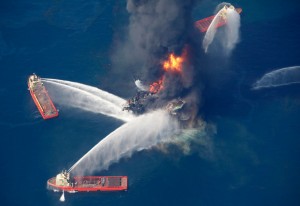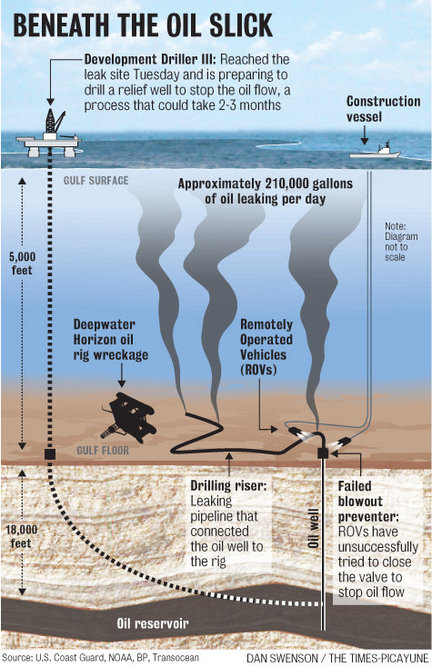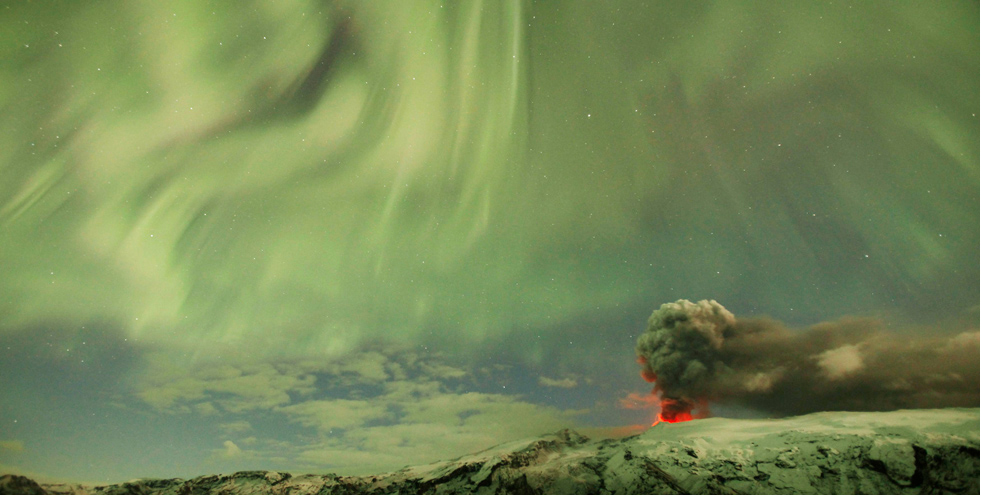…and the political posturing and spinning begins. The majority of primaries and gubernatorial races are still ahead of us. See the schedule here for each state: http://bit.ly/dy2Avp
For one, I’m disappointed with the administration’s slow response to this crisis. I’m surprised that Obama issued a statement last Friday still supporting the expansion of offshore oil and gas production in US waters, but I agree. I’m not surprised there was not a chorus of Democrats jumping on this statement.
Here’s a nice technical blow-by-blow of the Deepwater Horizon explosion by one of the workers on the rig:
Welcome to the World of Deep-water Risk
As I’ve said before, this accident is Mother Nature’s wake-up call to everyone. Deep-water drilling is a high-stakes game. It’s not exactly a “casino,” in that there’s a heck of a lot of settled science, engineering and technology involved. But we’re sure finding out the hard way what all the risks are. And it’s becoming more and more clear how the totality of risk is a moving target. There’s geologic risk, technical risk, engineering risk, environmental risk, capital risk and market risk.
With each deep well, these risks all come together over one very tiny spot at the bottom of the ocean. So for all the oil that’s out there under deep water — and it’s a lot — the long-term calculus of risk and return is difficult to quantify.
This is big news all through the offshore industry. There are HUGE environmental issues, and certainly big political repercussions.
It’s the biggest ecological catastrophe for the US, with far-reaching ramifications across the entire economy and politics. Energy sustainability is now more than ever a hot-button political topic, and a highly emotional one especially since knowledge of the energy sector is so minimal and greenwashed. Through various energy, social and market policies over the past fifty years the US has built up every aspect of the national infrastructure around oil and solidified our dependence on it. Projections for the most viable alternatives are decades away. And now we’re watching while the rest of the world races each other to implement clean energy industries while we’re mired in bureaucracy and catering to a fickle electorate’s every caprice. Hope this tipping point for energy policy isn’t squandered yet again.
Here’s a GREAT letter to Congress by @nelderini on what our energy policy should aim for, within a global context and in light of our current energy infrastructure. Here’s an excerpt but the entire piece is not long so you should read it:
It’s time to come up with a real plan, an honest plan, to rebuild America under a new energy paradigm. One with serious, achievable 30-year and 50-year milestones that will slash our need for fossil fuels.
A plan based on facts and science, not political expediency. One that will create true, long-term wealth, prosperity, resiliency, and self-sufficiency.
We need a Taskforce on Peak Oil and Energy Security to prepare the country for the decline of oil, not sweet lies from the EIA which completely ignore it. As Lester Brown observed, “only Sweden and Iceland actually have anything that remotely resembles a plan to effectively cope with a shrinking supply of oil.”
We want to stop spending half a trillion dollars a year for imported oil, and develop a defense strategy for the day when our imports dry up.
We need stable, simple feed-in tariffs, which have been proven successes in Germany, Japan and Spain…not complex, corruptible, ineffectual policies like cap-and-trade or cap-and-tax. And we need them for 30 years, not one.
We want solar on every rooftop, a wind turbine in every field and a micro-hydro turbine in every running stream, wherever viable resources exist. Distributed generation is resilient, and brings value to every community. Along with it, we need distributed power storage, and a smart grid with micro-islanding so we can fall back on our own resources if the grid goes down.
We want a plan to manage our resources for the long term health of our society, like Norway and Saudi Arabia have. Instead of planning to use our remaining oil and gas so we can drive in inefficient cars more cheaply, we should be planning to convert it into the renewables and efficiency gains we’ll need in the future.
We want a defensive strategy for our grid with hardening against cyber-attacks.
We need to reverse the long process of globalization and bring manufacturing back home. Instead of a society now dependent on complex, world-spanning, highly optimized supply chains, we need local resiliency, redundancy, and diversity in all the essential sectors: energy, water, food, and security.
Finally, we need energy education at all levels — from the street to the universities, from business to government employees.


